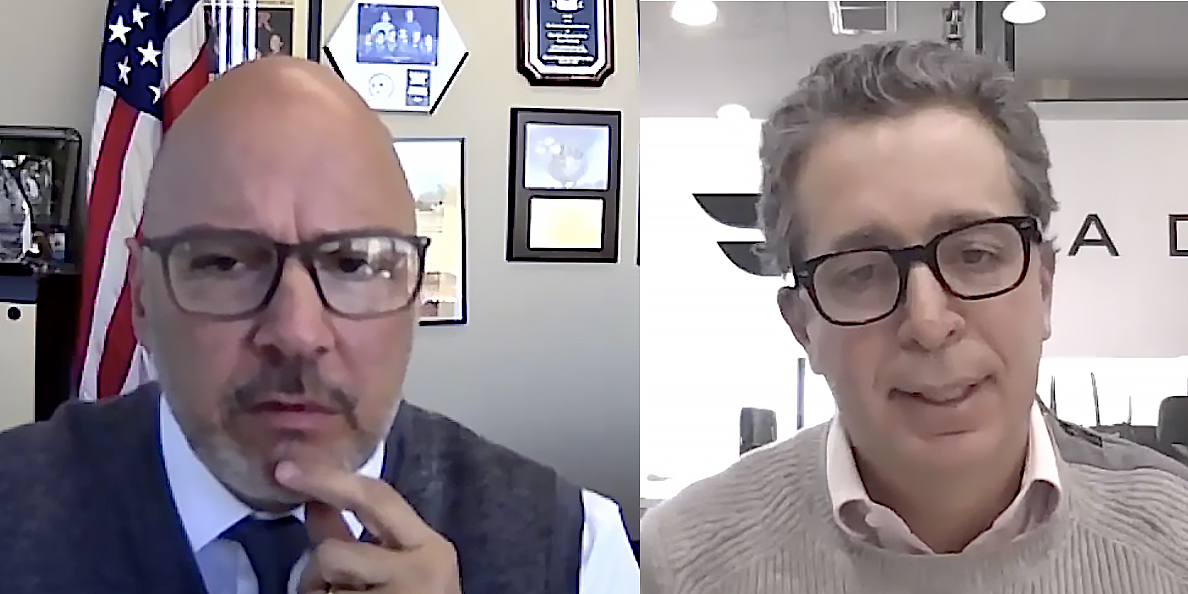New York City has had a troubled relationship with the helicopter industry ever since the Sikorsky S-61 accident atop the Pan Am building in 1977, which killed five people. But what was an uneasy détente for decades now appears on the verge of total war, with leading city officials pushing to purge civil rotorcraft from Gotham’s skies—forever.
Paul Vallone is leading the charge. The chairman of the New York City Council’s Committee on Economic Development (CED) has little sympathy for the helicopter industry there. At a CED hearing last month, Vallone accused the industry of generating noise that is “pillaging through our neighborhoods.” Vallone, an enthusiastic supporter of local and federal legislation that would effectively shut down civil helicopter traffic over New York, said residents of the city need to “reclaim our skies” and predicted the legislation would be passed. “We will have a victory,” he said.
During the two-hour hearing, the CED entertained testimony from a wide variety of community activists who said that helicopter noise caused ailments from cognition deficit to psychological problems to heart disease. “One will soon go mad before one dies of a heart attack,” said Ajit Thomas. Riverside Drive resident Steven Fox compared the city’s helicopter noise to “living in a war zone.”
[related-article]
Laura Birnback, a member of the anti-helicopter group known as “Stop the Chop,” accused the city of continuing “to cater to the few citizens who have a couple of hundred extra dollars to burn on a quick trip to the airport.” Melody Bryant said it was unfair that the city gave preference to “wealthy charter companies.”
Vallone’s complaints with the helicopter industry and the Federal Aviation Administration are myriad. With regard to the FAA and its power of preemption, he lamented, “We can’t control the skies over our airports. But I’ll be damned if someone else can tell us what happens over the skies of New York City without us telling them what that is. And that is exactly what has happened.”
Concurrently, Vallone bemoans the inadequate tax revenue the helicopter industry is generating. “We are not generating an income from this industry that mitigates the quality-of-life impact,” he said. But his sharpest comments were reserved for elements of the local helitour industry, which have moved their bases to New Jersey and the New York suburbs to skirt tour capacity restrictions instituted in 2016 at the city’s heliports. Vallone accused one prominent helitour company, doors-off FlyNYON, of willfully ignoring New York City no-fly zones in order to fly “with the doors off and these idiots [customers] taking pictures. We’re not flying helicopters over Hoboken taking pictures of what is left of New Jersey.”

Although the amount of helicopter traffic over New York declined 90 percent last year, largely attributable to the COVID-19 shutdown there, helicopter noise complaints to the city’s 311 hotline skyrocketed 130 percent over 2019 levels. Helicopter flight volume has recovered to near 20 percent of pre-pandemic levels, according to Adam Lomasney, aviation director of the city’s Economic Development Corporation, the local body that oversees its aviation assets. The rapid acceleration of noise complaints is similar to a surge seen in 2015, the year before New York convinced the helitour industry there to “voluntarily” reduce flights by 50 percent and shut them down altogether on Sundays beginning in 2017.
Speaking of that deal, Vallone seemed to lend credence to industry complaints that it was little better than extortion. “If I had to sit back and wait for the FAA to help the people of New York City, nothing would ever be freaking done around here. We have voluntarily got things done with threats of fines and through contracts and regulation,” he said.
In 2015, in the months leading up to the deal that cut helitour flights, helicopter noise complaints similarly surged, to 1,083 for the year, then dropped to 681 in 2016. And the most recent, albeit incongruous, helicopter noise complaint statistics are being used by Vallone and his allies to propel two city bills of particular concern to the helicopter industry.
Bill 2026 would prohibit charter helicopters from taking off and landing at the two city-owned heliports—Manhattan downtown and East 34th Street—unless they were determined to be compliant with Stage 3 noise requirements, while Bill 2067 mandates that city-owned heliports provide helicopter routing information to the city council “on request.”
Both bills are opposed by industry groups, including the Helicopter Association International (HAI) and the Eastern Region Helicopter Council (ERHC). Long-time ERHC officer Jeff Smith warned the CED that the bills would do nothing to reduce helicopter noise over the city, but it would lead to the economic demise of the two city-owned and one privately owned heliports in New York. Smith pointed out that Stage 3 helicopters are not currently commercially available in the size needed for charter and tour operations.
Shutting those heliports would, however, preclude their availability when cheaper and quieter eVTOL—electric vertical takeoff and landing aircraft—come online in the next few years, the industry groups warned. Alluding to that technology, Smith said, “As we talk about the dream for more New Yorkers to travel by air—this bill completely eliminates that dream.”
Vallone and community activists participating in the hearing seemed unmoved by that argument. Vallone discounted the promise of quieter eVTOLs, questioning when they would actually fly commercially. “I hear 2025, 2030,” Vallone said. “It’s not something I can bring back to people in Queens and say, ‘Hang in there, folks.’”
Aside from putting the heliports out of business, the city legislation has another problem: It’s illegal, according to the ERHC’s legal counsel, Jol Silversmith. He said the bills violate the Airport Noise & Capacity Act of 1990, a law enacted to prevent localities from crafting their own aviation noise and access restrictions, as well as running afoul of federal aviation law with regard to preemption and exclusive rights. Silversmith added that it is illegal for a heliport that receives federal aid to grant one group of helicopter operators favor over another.
But not all in the local industry are united in opposition to the universal application of further helicopter restrictions. Rob Wiesenthal, CEO of helicopter rideshare service Blade, made it clear to the committee that he is concerned about elements of the region’s helitour industry. “The noise is coming from non–New York City (based) helicopters flying over Manhattan for tours,” he said. Wiesenthal noted that Blade flights are usually in operator-flown Bell 407s, which come close to the Stage 3 standards, and fly overwater routes. “We will not work with anyone who flies over the cityscape,” he proclaimed. Like ERHC’s Smith, he cautioned that the bills have longer-term implications. “It is important to note that the legislation here will lead to the shutdown of New York City heliports, jeopardizing the infrastructure necessary for the arrival of electric aircraft,” Wiesenthal said.
That doesn’t factor into the local political equation, according to Vallone. “If the net result of this legislation is the end of an industry that comes next, that no one really cares about, then we are in a tough spot. Because the people who employ us don’t want it anyway.”






